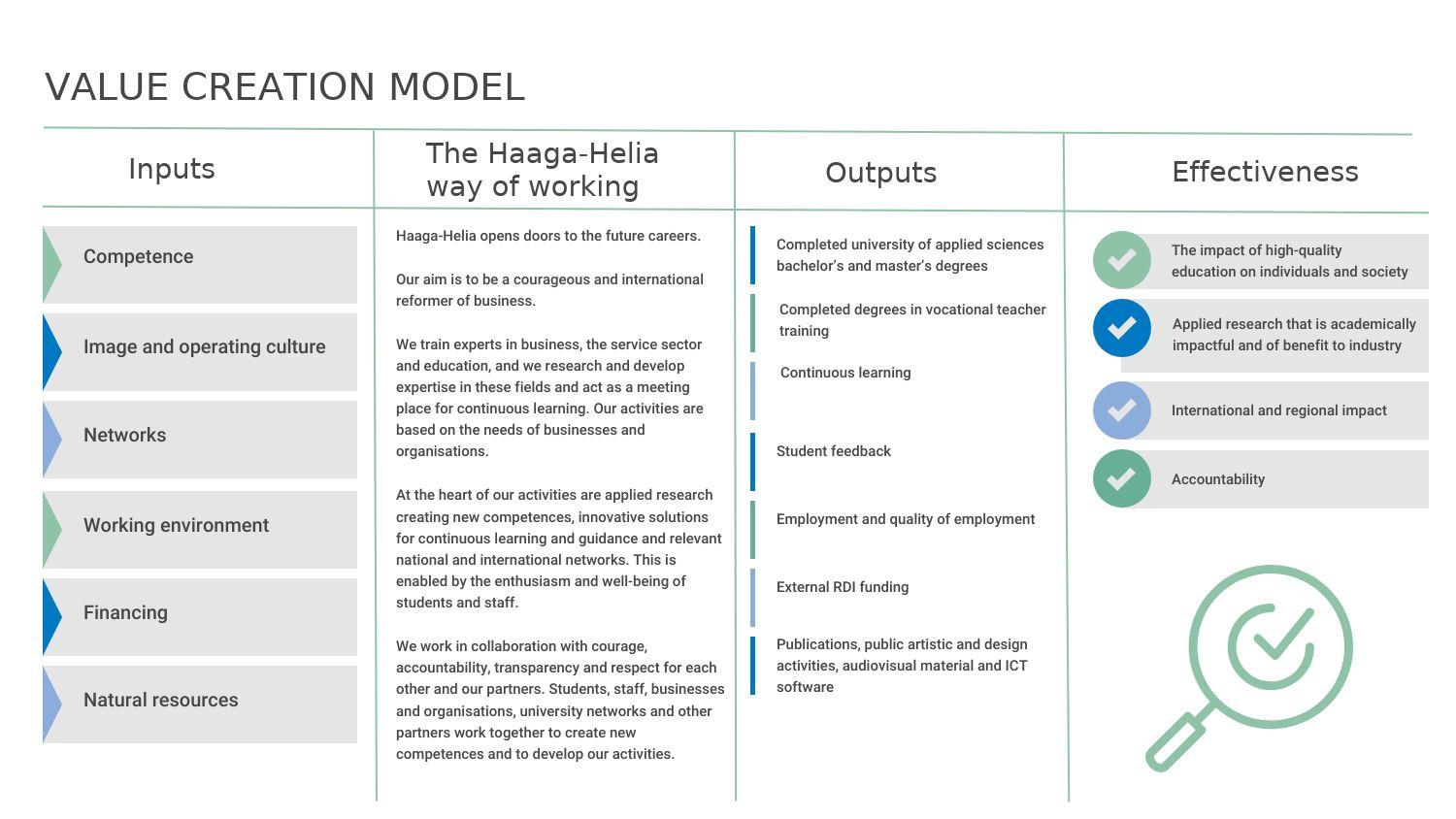Active societal engagement derived from strategy
Engagement with society is built into our strategy and guides our operations. The strategy itself is created in a dialogue with society and the business world.
We actively engage with various stakeholders such as regional, national and international networks, students, alumni, the Ministry of Education and Culture, Arene (the Rectors’ Conference of Finnish Universities of Applied Sciences), as well as other universities and companies. We organise an annual Future Forum for stakeholders and staff. We have many sectoral advisory boards and are in the process of launching an international advisory board. In September 2022, we established a Foresight Forum to develop our foresight model and gather information systematically from different sources.
The Strategic Preparation Group regularly monitors and evaluates changes in the operational environment, producing material for the Management Group. Operational environment is also analysed bi-annually at the Management Group’s strategy meeting. Based on the analysis, we update the strategy chart annually and set next year’s objectives. The Board approves the strategy and annual action plan. The objectives of societal impact are integrated into the objectives of our main processes.
Four aspects of societal impact
Societal impact arises as a result of our operations in various areas. The setting and monitoring of our societal impact objectives is based on the value creation model built in 2018 and updated in spring of 2022. In accordance with the model, we monitor and evaluate our social impact from four perspectives.

Picture 17. Value creation model
The first aspect is the impact of a high level of education on individuals and society (I). At the centre are students who complete a high-quality education and are employed in positions corresponding to their education. The development of pedagogy helps achieve learning objectives. Competences meeting the current and future requirements of business promote the competitiveness of companies and the wellbeing of their staff. Productivity increases through new technologies and operating models. Our graduates and staff influence society and its networks in many ways.
The second aspect is applied research that is academically influential and benefits the business (II). The expertise generated in RDI operations increases the know-how of both the partners and our staff and students. Effectiveness is reflected in academic discussion, internationalisation and the strengthening of competitiveness through service and product innovations.
The third aspect is international and regional impact (III). Haaga-Helia is both a strong international player and closely attached to the region’s business. International partnerships and networking create the basis for student and staff mobility, as well as for large-scale education, research and development projects involving universities from all over the world. Hundreds of study projects, theses, and development projects are carried out annually in cooperation with the region’s business, creating new services, products, and operating methods in the daily lives of companies and other partner organisations.
Accountability (IV) is part of all our operations. We support sustainable development through our education and RDI activities. Promoting equality, inclusion, and accessibility is important to us. The direct and indirect economic effects on society through our sustainable operations are also significant.
Shared management of societal engagement and impact
In 2020, the management of societal impact was centralised to one director, which proved challenging due to the diverse activities. In the autumn of 2022, management will change and objectives of societal impact will be closely integrated into our main processes.
The following persons are responsible for setting, monitoring, and reporting societal impact by sub-sectors: (I) Pedagogic Vice President, Director Responsible for Competence and Director of the Vocational Teacher Education; (II) Vice President for RDI and Digitalisation and Director for Research Services; (III) Commercial Director and (IV) Responsible Haaga-Helia Team, including experts from different areas of responsibility.
The Management Group coordinates the set of objectives which are turned into action through the main processes. Haaga-Helia’s key joint results are reported in the annual report, and the impact of the sub-sectors described in reports published every two years. In 2022, report from sub-sector (II) has been published. We regularly communicate our operations, projects and results to our stakeholders.
| Strengths | Enhancement areas |
| Extensive networks | Systematic description and development of networks |
| Good brand and desired partner | Maintaining our brand |
| Clear value-creation model for societal impact | Adoption of existing indicators for societal impact |
| Shared responsibility of societal impact | Enhancing communication between different responsibility areas |